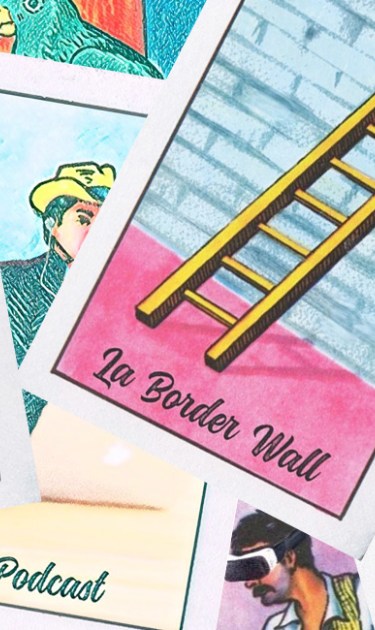If you place a cell phone in the hands of La Sirena, it’d be easy to imagine her using her extended arms to snap a few selfies. Or if you equip a man with virtual reality equipment, you may not see a difference between someone playing a game and El Borracho wobbling across the street. While not everyone will associate modern, everyday situations with lotería – a game often called Mexican bingo – Mike Alfaro started noticing these patterns when he returned to Guatemala (on a quest to do research for a TV show he’s pitching) and played the game with his family.
To him, the original cards felt like “outdated representations of our daily life,” so the 29-year-old writer and creative director set out to create a 2017 version that he calls Millennial Lotería. The result is a witty, introspective, and at times, critical version of the game that many Latinos grew up loving.
“It contrasts nostalgia and modern times with a humorous twist,” he told Remezcla. “It also rejects dated Hispanic stereotypes while at the same time poking fun at millennial stereotypes. It’s an idea that has different levels of interpretation, and I think that’s why people react to it so strongly.”
It’s also incredibly relatable and topical. While anything that groups millennials as a monolithic group is often groan inducing (i.e. Australian millionaire Tim Gurner saying millennials can’t afford homes because of all the avocado toasts they’re buying), Alfaro’s cards speak on so many of our experiences. For example, Alfaro transformed the El Mundo card – which features a man, much like Atlas, struggling under the weight of the world – into a pretty accurate portrayal of millennials crushed by their student debt.
Or there’s La Escalera, a ladder that rests against a wall. Under Alfaro’s shrewd eyes, this card became La Border Wall, an indictment on the structure President Donald Trump has vowed to build since announcing his bid for presidency on June 16, 2015. “We see your wall and we give you La Escalera,” the Santa Monica-based writer wrote on Instagram.
Since being introduced to Mexico in the late 1880s, lotería remains culturally relevant. That’s why people dress up as the characters for Halloween, why plenty of Etsy shops sell lotería-inspired items, or why artists have reimagined the cards in a multitude of ways (i.e. Space Lotería or jotería). What likely brings them all together is that lotería brings back vivid memories of childhood and family.
Though the game’s typically associated with Mexican culture, lotería formed an important part of Alfaro’s childhood in Guatemala. His first memory of the game is playing it at a feria in Nebaj, Quiche in Guatemala. “That’s where my parents were born and they took me to visit when I was very young,” he said. “They told me they played the game there as kids. So instantly, I had an emotional connection… I think there are many traditions that cross borders in Latin America. Lotería is one of them. That’s why I think it’s very relatable. It’s something that all Latinos can rally around – something we can all be proud of saying we played as kids. It unifies a very diverse community in America.”
[H/T Vivala]
Update: Millennial Loteria is now available for purchase here.




